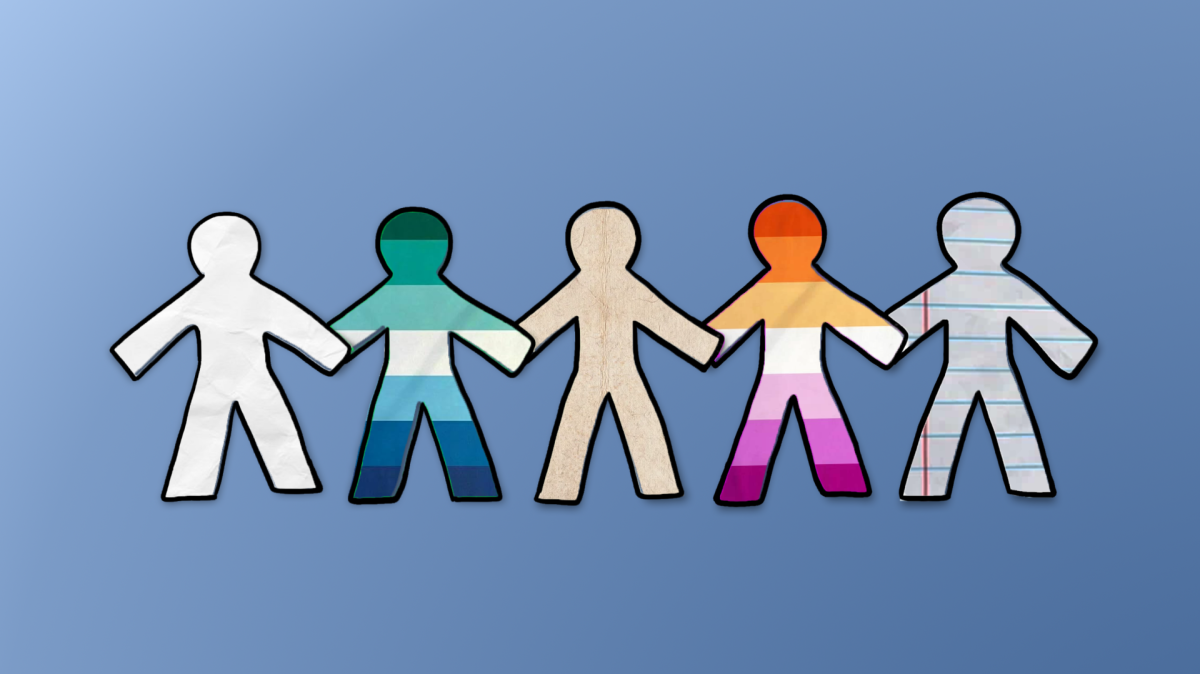Imagine you’re a young boy sitting in a fifth-grade classroom.
Two other boys at your table are discussing some TV show they watch, and they mention that there’s a character on the show who’s both attracted to women and a woman herself (what a concept!).
When your mom picks you up from school that day, you tell her about it. Her response is upset, and she explains how she had tried to “protect” you from the concept of men with men and women with women. She talks about religion. She talks about her boss who was “like that.”
MORE OPINION: Here is what will happen at the 2024 Oscars Awards ceremony
She didn’t imagine that maybe you’d realize you belonged in the very group she was trying to protect you from.
And so you proceed into and through middle school knowing that the idea of being “gay” wouldn’t be something to share with mom. Or maybe with anyone.
Imagine now that you’re a closeted gay high school senior sitting in your organic chemistry class.
At the table across the room, one of your peers tells his friends about the horrifying situation he wants to avoid in his freshman year of college. He is of course talking about the repulsive prospect of having a gay guy in his dorm hall at LSU.
His fear—his hate—was directed at some vague imaginary homosexual voyeur or predator whom he’d have to fend off in Laville Hall’s showers.
Little did he know, his words didn’t just vanish into the ether after he spoke them. They didn’t just land on apathetic, bigoted or just generally unaffected straight ears. After all, you heard them. He just assumed you were straight. In his head, there was no homo around, so he could just say whatever he wanted about them.
Unknowingly, he was already in the room with at least one dreaded gay boy. Even more surprising, it’d be the very same homo who would end up sleeping right on the other side of the wall from him just a few months later.
Imagine at last that you’re a semi-closeted gay sophomore in college looking for a new mental health provider.
You schedule an initial consultation with one. It goes well for most of the hour, but then he asks a question that sends shivers down your spine: “Have you ever had a girlfriend?”
You say no, but he asks a follow-up. It’s somehow worse, “Why? Don’t you like girls?” You try to weasel your way out of answering, saying that you’re just not looking for a romantic relationship.
You conceal the real answer, since the very question indicates that he expects his clients to be straight by default. The man who’s supposed to be helping you may have a prejudice that renders him harmful.
You get the feeling he considers “fag” to be a technical term.
As should be obvious, these scenarios aren’t hypotheticals. They’re the lived experiences of this columnist.
And they’re evidence of a substantial problem pervasive in our society: expecting people to be straight—treating homosexuality as a deviation from the norm rather than just an alternative to the common.
When the misguided mother or the ignorant teenager or the stubborn social worker assumes they’re in good ol’ heterosexual company, they’ll talk differently than when they know there’s “one of them” around.
Some folks might be actively abrasive or even abusive to the out and proud gay person, but they inflict a passive, suffocating isolation onto the closeted one.
Their accidental and intentional hate isn’t played up as part of some cruel game they play with the little “fairy” they’ve trapped. It’s honest. It’s unfiltered. It’s exactly as they truly think and feel.
You can’t challenge them. You can’t visibly appear hurt. You can’t talk to anyone about it.
If you did, then you’d just be painting yourself a rainbow target for one of those cruel little games.
Matthew Pellittieri is a 19-year-old history and political science sophomore from Ponchatoula.





